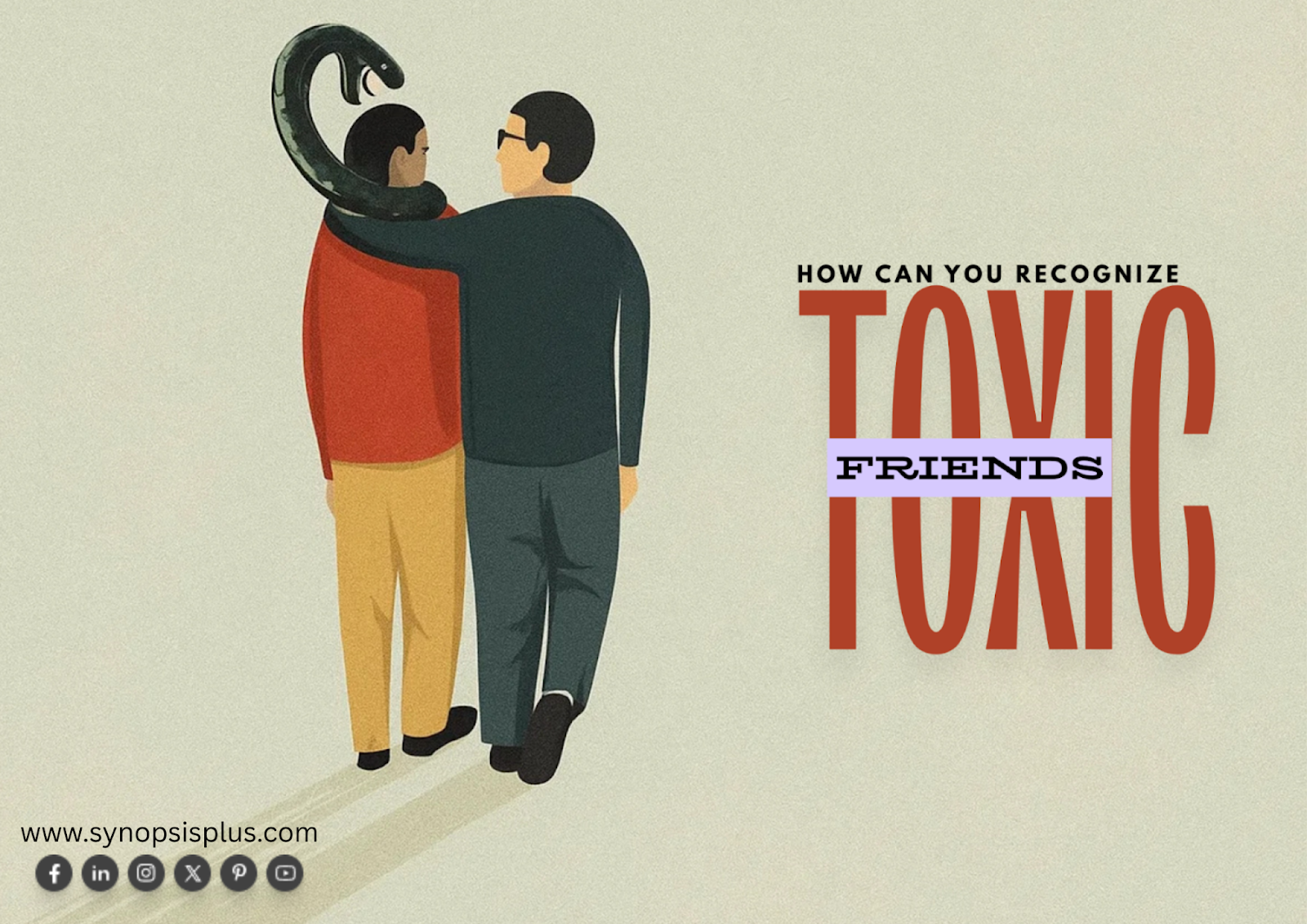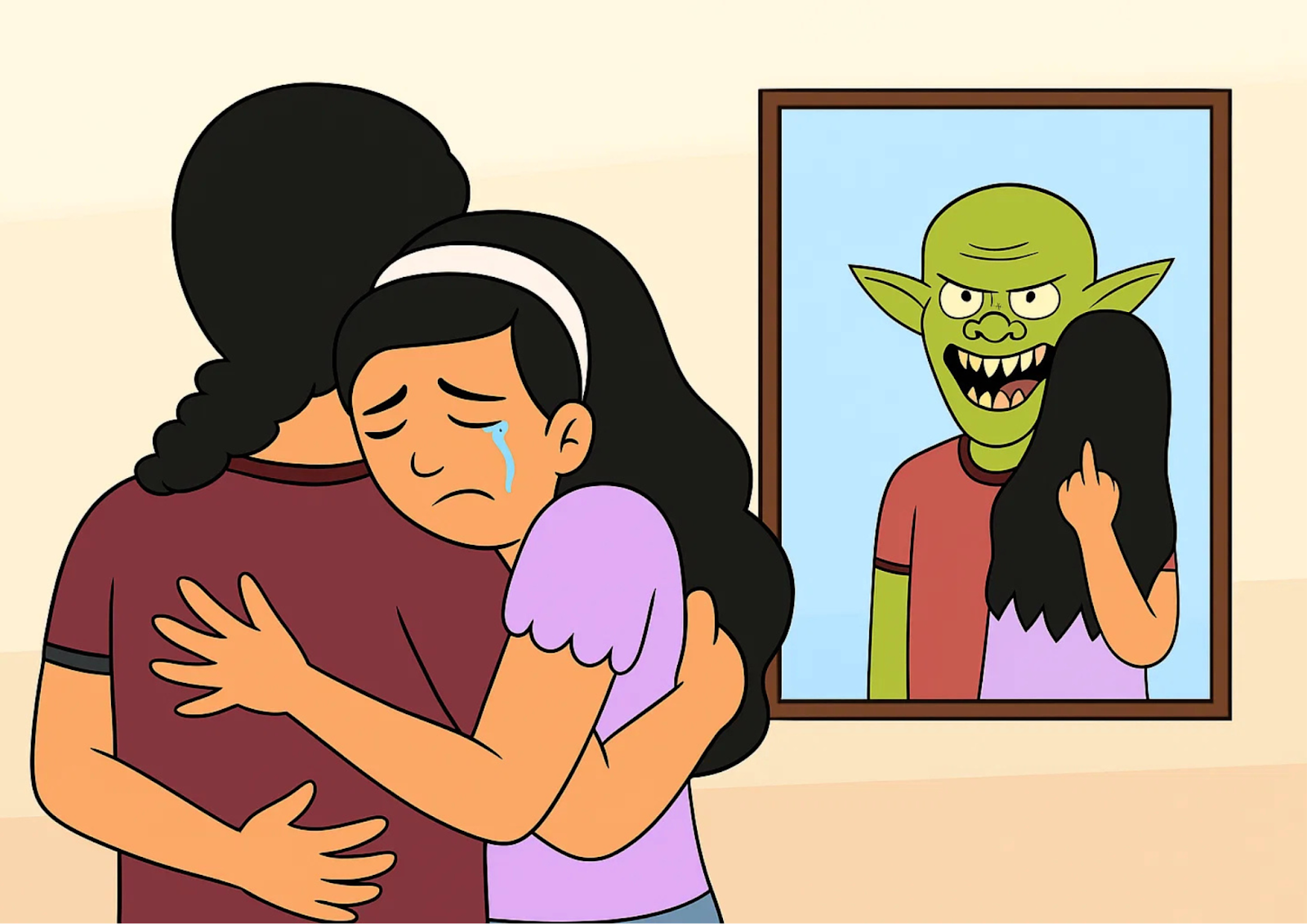
7 Warning Signs in Friendships That Could Affect Your Mental Health
At first, I thought Mari was my best friend. We laughed for hours, shared secrets, and spent nearly every day together. But slowly, things changed. Her jokes started feeling more like an insult. When I achieved something, instead of being happy for me. She would ignore it or make a rude comment. I realized I felt anxious before meeting her. Always overthinking what I said and wondering if I was good enough.
Friendships are meant to bring joy, comfort, and support. But not every friendship is healthy. Sometimes, a friendship that once felt amazing can slowly turn into something that makes you feel small, drained, or unworthy. Instead of lifting you up, it slowly tears down your confidence. Instead of giving you peace, it leaves you feeling stressed and uneasy. These kinds of relationships are known as toxic friendships. The scary thing is, toxic friendships don’t always look bad at the start. They often start out fun and supportive, so you don’t notice the problems right away.
At first, you might ignore the red flags because you care about the person or because you don’t want to believe a friend could hurt you. But over time, the signs become clearer and so does the impact on your mental health.
7 Warning Signs of Toxic Friendships
Friendships, like all relationships, have ups and downs. But when negative patterns dominate, that’s when they become toxic. Here are seven red flags to watch out for:
1. They Put You Down
A good friend makes you feel good about yourself. A toxic friend does the opposite. They keep making “jokes” about you, point out your flaws, or dismiss your achievements. At first, you may laugh it off, but over time, it hurts and lowers your confidence.
2. They Only Call When They Need You
Do you notice your friend shows up only when they need a ride, device, or money, but disappears when you need help? That’s a one-sided friendship. Real friends are there in good and bad, not just when it benefits them.
3. They Make You Feel Guilty
A toxic friend often tries to control you with guilt. They may say things like, “You’ve changed,” or, “I guess you don’t care about me anymore,” when you spend time with others or focus on yourself. This isn’t love, it’s manipulation.
4. They Drain Your Energy
Think about how you feel after seeing this person. Do you feel happy and supported, or do you feel heavy, stressed, and tired? True friends lift you up. But the toxic one leaves you feeling exhausted.
5. They Don’t Respect Your Boundaries
Respect is key in any friendship. If your friend shares your secrets, pressures you to do things you don’t want, or ignores your personal space, it shows they don’t respect you. Healthy friends know your limits and honor them.
6. They Can’t Be Happy for You
Instead of celebrating your wins, they compete with you, get jealous, and make backhanded comments. Over time, you might stop sharing your good news because it never feels safe to. A real friend will always cheer you on.
7. They Aren’t There When You Need Them
When life gets tough, true friends stay by your side. Toxic friends, on the other hand, disappear or only show up when it’s easy for them. If someone can’t be there in your hard times, it shows they don’t truly value the friendship.
How Toxic Friendships Affect Your Mental Health
Toxic friendships can affect your mental, emotional, and sometimes physical health. It's important to address and resolve unhealthy relationship patterns to protect your well-being. Here’s how toxic friendships can directly affect your mind:

1. Stress and Anxiety
When a friend always brings drama, guilt, or disrespect, it causes stress and anxiety. You feel tense around them and start worrying before you even meet, expecting something negative to happen. You may find yourself overthinking conversations, worrying before you even meet them. You start expecting something negative to happen, no matter how much you try to keep the peace.
2. Low Self-Esteem
When a friend constantly makes fun of you, compares you to others, it slowly affects the way you see yourself. At first, you may try to ignore it, but repeated negative comments sink in over time. You might begin doubting your strengths and questioning your worth. Instead of feeling proud of who you are, you start believing you’re not good enough which can damage your confidence and happiness.
3. Emotional Exhaustion
Friendship is meant to be a two-way street. You give love, support, and time, and in return, you should feel cared for too. But in a toxic friendship, it often feels one-sided. If you are always the one listening, helping, and supporting. While your friend never does the same, you eventually feel drained. Instead of feeling uplifted, you feel tired, heavy, and emotionally empty.
4. Trust Issues
Trust is the foundation of any strong relationship. When a friend breaks promises, lies, or shares your secrets, it damages that foundation. At first, you may forgive them, but repeated behavior is hard to ignore. With time, you not only stop trusting that friend, but you may also find it difficult to trust others. This can make opening up in future friendships or relationships much harder.
5. Isolation
Sometimes, instead of dealing with constant negativity, arguments, or pressure, you choose to pull back. You might stop going out, avoid social gatherings, or distance yourself from people altogether just to keep the peace. This isolation only makes you lonelier and cuts you off from people who could actually support and uplift you.
The Consequences for Mental Health
If you stay in toxic friendships for too long, the effects can become more serious:
- Chronic Stress : Constant negativity keeps your body under stress. This can ruin your sleep, make it hard to focus, and even weaken your health.
- Anxiety Disorders: When you’re always worried about being judged or manipulated, your anxiety gets worse. This may show up as racing thoughts, restlessness, or panic attacks.
- Depression: Feeling unsupported and unloved can lead to depression. You may lose interest in things you once enjoyed, feel hopeless, or stay sad most of the time.
- Self-Doubt: Hearing negative comments again and again makes you question yourself. Soon, you might feel unsure of who you are or what you’re capable of.
- Burnout: Putting too much energy into a draining friendship leaves you exhausted mentally, emotionally, and even physically.
- Problems in Other Relationships: Toxic habits don’t just stay in one friendship. They can spill over into new relationships, making it harder for you to trust, set boundaries, or feel safe with others.
5 Tips for Healing After Toxic Friendships
Letting go of a toxic friendship can feel heavy. You may feel sad, guilty, or even confused about what happened. Healing takes time, but it is possible and most importantly, you deserve it. Here are simple yet powerful tips to help you move forward:
- Allow Yourself to Feel: Don’t ignore your emotions. It’s normal to feel sad, angry, or even relieved. Journaling or talking to someone you trust can help.
- Learn to Set Boundaries: Decide what behaviors you won’t accept anymore. Boundaries protect your peace and help you build healthier friendships.
- Reconnect With Yourself: Do things that bring you joy and confidence. Focus on your hobbies, strengths, and the parts of yourself you may have lost.
- Spend Time With Positive People: Surround yourself with friends and family who support and uplift you. Healthy energy helps you heal faster.
- Be Patient With the Process: Healing takes time. Some days will be harder than others, but every step forward no matter how small is progress.
